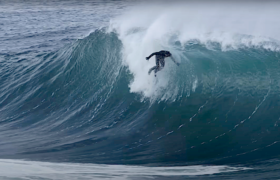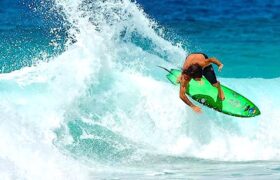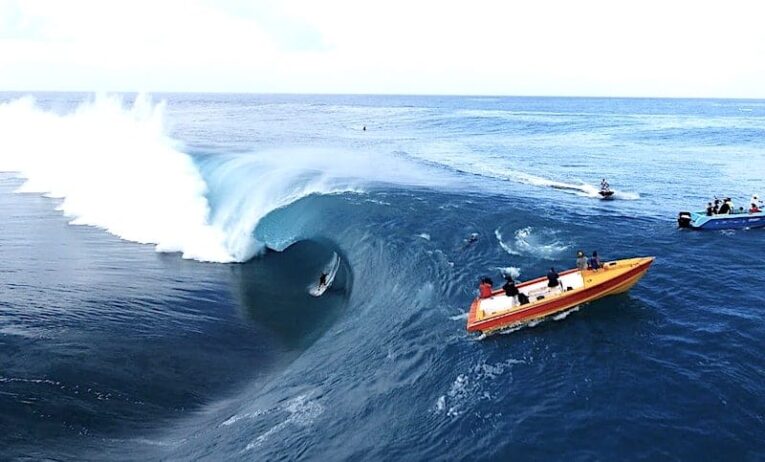All surfers to be housed in a pair of cruise liners anchored out the back of the famous wave.
In roughly one year, the world’s best surfers, as well some pretty ordinary fringe dwellers from landlocked countries and hundreds of officials and coaches, will descend upon the wildly pristine Tahitian town of Teahupo’o for the surfing part of the Paris Olympic Games.
And locals are worried the joint’s gonna get flattened by the influx.
“I’d go to war to keep this place the way it is … We gotta keep Teahupo’o Teahupo’o,” Henry Tahurai told The Guardian. He says he’s “scared “of what might happen to his “little piece of paradise… We’re not doing it for us, we’re doing it for the next generation.”
If you’ve ever been to this town of fifteen-hundred souls at the literal end of the road in Tahiti-iti, seventy clicks or so from the capital Papeete, you’ll know what a low-fi little joint it is outside of the annual WSL event there when the only noise you’ll hear is the great swoosh of water as Filipe reverse paddles into a set. There’s the occasional whine of a boat engine in the lagoon. The slap of rubber flip-flops on the road, the splashing of a school of fish chased by a tiger shark.
You’ll find basic accommodation in A-frame huts built on acres of lush tropical grass or in family owned houses built at the water’s edge, the matriarch and patriarch your gracious hosts.
Here, you’ll sleep in what looks like a kid’s room with an electric fan blowing warm air on your face while the cute blonde radio announcer with breasts like soft plums, mysterious, awesome, indescribably magnificent protuberances, who came down to the contest from Papeete, laps at your balls as she tries to wake you up so you can give her a manually induced orgasm.
When the Olympics were first mooted to be in Tahiti, big plans were announced, a new bridge across the river so cars could get in, an Olympic village, a big hotel renovation.
“I wasn’t against the Olympics being held here in Teahupo’o, but I was against all the buildings they wanted to build,” Cindy Otcenasek, president of the environmental defence association Vai Ara o Teahupo’o, told the Guardian.
After months of meetings, all the development except a widening of the pedestrian bridge, better drinking water and an improvement in internet access, were shelved.
So what’s gonna happen to the 48 surfers and their teams if there ain’t no hotel? They’ll be staying on a pair of cruise liners anchored out the back of Teahupoo.
“It’s not the best solution – the motors run all day,” says Otcenasek, “but it’s the one that won’t leave any lasting trace in Teahupo’o”.
As marine scientist Dr Sam Purkis, chair of Marine Geosciences at the University of Miami, says: “Providing that the ships anchor on sand and do not discharge their waste into the bay, the impacts of their presence will hopefully be minimal. In the end, it is the reef edifice which has grown over millennia which creates the wave that the competitors seek.”
Echoing his Polynesian brothers in Hawaii, Tahurai says, “The Olympics are welcome here but leave this place as beautiful as it was when you saw it for the first time.”






